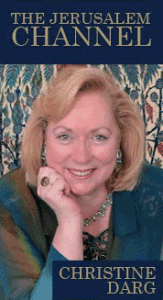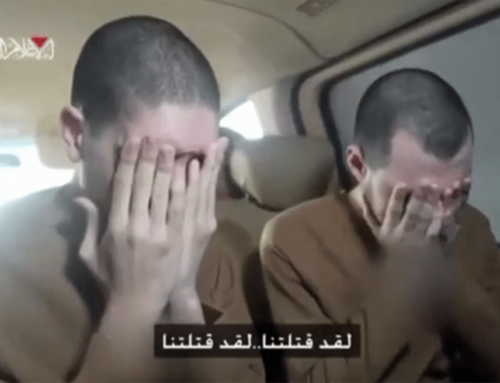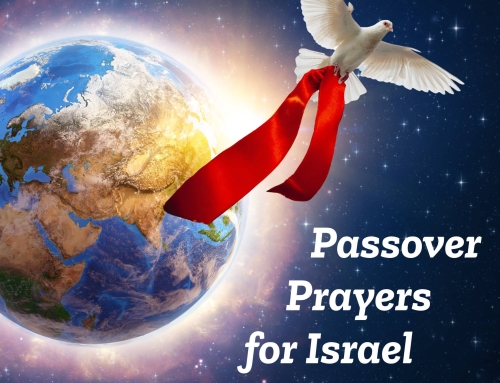 Christian theology degenerated through the centuries to bring about the catastrophe that most Bible-believers do not understand that God is miraculously restoring the Jewish people in our generation.
Christian theology degenerated through the centuries to bring about the catastrophe that most Bible-believers do not understand that God is miraculously restoring the Jewish people in our generation.
An independent Jewish State, and a renewal of life in the land of the Bible, has been the most complex theological conundrum and a total contradiction to Church dogma. Even now with the Pope’s recognition of a Palestinian State, the Vatican sends mixed signals.
The Second Vatican Council famously addressed the charge of Jewish deicide, repudiating the belief in collective Jewish guilt for the crucifixion of Jesus. The Council issued Nostra aetate (“In Our Time”), which reads in part:
- The Jews should not be presented as rejected or accursed by God, as if this followed from the Holy Scriptures. All should see to it, then, that in catechetical work or in the preaching of the word of God, they do not teach anything that does not conform to the truth of the Gospel and the spirit of Christ.
Many bridges are being built in our time, but we still need to ask honestly–Has a correction happened? Is a new Reformation under way? Unfortunately, the growth of anti-Semitic replacement theology seems instead to have increased in many quarters of the churches.
If we miss the mark on this issue, our trajectory of holding to correct Biblical and escathological doctrine goes way off course. The Lord at this time is about to restore the kingdom to Israel (Acts 1: 6) at his Second Coming, and if the churches do not understand this–and if they rebel and divest from Israel and become anti-Semitic, they will oppose Christ and the Davidic throne he will establish, according to Gabriel’s sure word to Mary in Luke 1: 32 and other prophecies.
Luke 1: 32 has not yet been fulfilled, but it will be fulfilled in Israel during the Millennium. We are in a unique period of grace at the end of the times of the Gentiles leading up to the return to Jesus to sit on David’s throne. There is no Palestine (a Roman label) in the messianic league of nations that God envisions in Isaiah 19: 23-15. But there are Egypt, Assyria and Israel. Therefore let us be like the children of Issachar who understood the times. (1 Chronicles 12:32)
Arabs in the region are not to be ignored, down-trodden or treated like second class citizens. Provision must be made for them to be accommodated. We want the very best scenario for the region, especially for our Arab brothers and sisters in Christ. Meanwhile, as bridge builders Arab Christians have the biggest challenge of grace not to become bitter and hostile against God’s restoration of Israel at this time, or they will be opposing the very God they worship. The sooner Christian Arabs divest themselves from the Islamic agenda and cling to the eternal purposes of the God of Israel, the happier they will be, because they will understand the times as well as the lateness of the hour. Father Gabriel Naddaf, a Greek Orthodox priest who resides in Nazareth, understands this and is leading the way as a great reformer.
In past centuries, the Church underwent dramatic seasons of reformation. Dr. Jürgen Bühler, executive director of the International Christian Embassy Jerusalem (ICEJ), sees “another wave of reformation coming to the Church, and it has to do with Israel. The early Church’s understanding of God’s enduring purposes for Israel and of our connection to the Jewish people must be brought back to mainstream Christianity today.”
So vital is the urgent need of this reformation that the ICEJ has chosen REFORMATION for its theme for the 2015 Christian Celebration during the Feast of Tabernacles.
“The word of God records different seasons of reformation in the history of the people of Israel,” Dr. Bühler wrote. “Men of God throughout the Bible were used by God to bring vital reforms to God’s people. Asa (2 Chronicles 15), Hezekiah (2 Chronicles 30-31), Josiah (2 Chronicles 34), and Nehemiah are just a few examples of great transformational leaders who renewed the spiritual state of Israel.”
Furthermore, “The Church also has gone through various phases of reformation and rediscovering old truths. One of them, for example, was the rediscovery of the call to world missions. Most churches did not have a big vision for the lost and often uncivilised tribes of the world. It changed when Moravian brethren and later people like Hudson Taylor and William Carey left their home countries to become missionaries in far-off lands. They became reformers as they returned the vision for world missions to the Church. Today, it is hard to imagine a local church without a missions budget and outreach.”
In the future every New Testament church needs to be “very intentional in how we return the blessings received through the Jewish people,” says Dr. Bühler, adding intuitively that “in times to come, a healthy church can no longer afford to ignore Israel.” Let’s take a selah moment on that!
Indeed, The Jerusalem Channel says, “Amen!” Let this be taught from every pulpit– the “Prayer for Israel” group should no longer be sidelined in the churches as an “accessory” but should be up front and central! Click here to watch our video, “8 Reasons to Stand with Israel.”
In the Reformation that is underway, churches must recognise our debt to Israel, and as the ICEJ and so many others have taught, (such as the late Lance Lambert and Derek Prince, of blessed memories), we must recognise Israel’s calling as irrevocable (Romans 11:29).

“Older Younger Brother” Book cover shows Canon Andrew White with Chief Rabbi David Lau and Rabbi Michael Melchior
To underscore the problem, Canon Andrew White wrote, “Older Younger Brother,” subtitled, “The Tragic Treatment of the Jews by the Christians.” In his timely book, Andrew lists the 10 Points of Seelisburg, Switzerland, a statement produced by Christians at the Second Conference of the International Council of Christians and Jews in 1947.
This was one of the first statements following World War II in which Christians began to come to terms with the implications of the Holocaust and Christian antisemitism.
During this important conference, delegates understood that Christian teaching had to be urgently corrected. They prepared ten points, largely inspired by 18 proposals of historian Jules Isaac to eradicate prejudices against Jews.
It is vital that all churches everywhere study the 10 Points
“An Address to the Churches“[1]
- Remember that One God speaks to us all through the Old and the New Testaments.
- Remember that Jesus was born of a Jewish mother of the seed of David and the people of Israel, and that His everlasting love and forgiveness embraces His own people and the whole world.
- Remember that the first disciples, the apostles and the first martyrs were Jews. (see Apostle (Christian)
- Remember that the fundamental commandment of Christianity, to love God and one’s neighbour, proclaimed already in the Old Testament and confirmed by Jesus, is binding upon both Christians and Jews in all human relationship, without any exception (see Ethic of reciprocity).
- Avoid distorting or misrepresenting biblical or post-biblical Judaism with the object of extolling Christianity.
- Avoid using the words Jews in the exclusive sense of the enemies of Jesus, and the words The Enemies of Jesus to designate the whole Jewish people.
- Avoid presenting the Passion in such a way as to bring the odium of the killing of Jesus upon all Jews or upon Jews alone. It was only a section of the Jews in Jerusalem who demanded the death of Jesus, and the Christian message has always been that it was the sins of mankind which were exemplified by those Jews and the sins in which all men share that brought Christ to the Cross. (See Passion play and deicide)
- Avoid referring to the scriptural curses, or the cry of a raging mob: “His Blood be Upon Us and Our Children,” without remembering that this cry should not count against the infinitely more weighty words of our Lord: “Father Forgive Them, for They Know no What They Do.” (see blood curse)
- Avoid promoting the superstitious notion that the Jewish people are reprobate, accursed, reserved for a destiny of suffering.
- Avoid speaking of the Jews as if the first members of the Church had not been Jews. (see Council of Jerusalem)







Leave A Comment